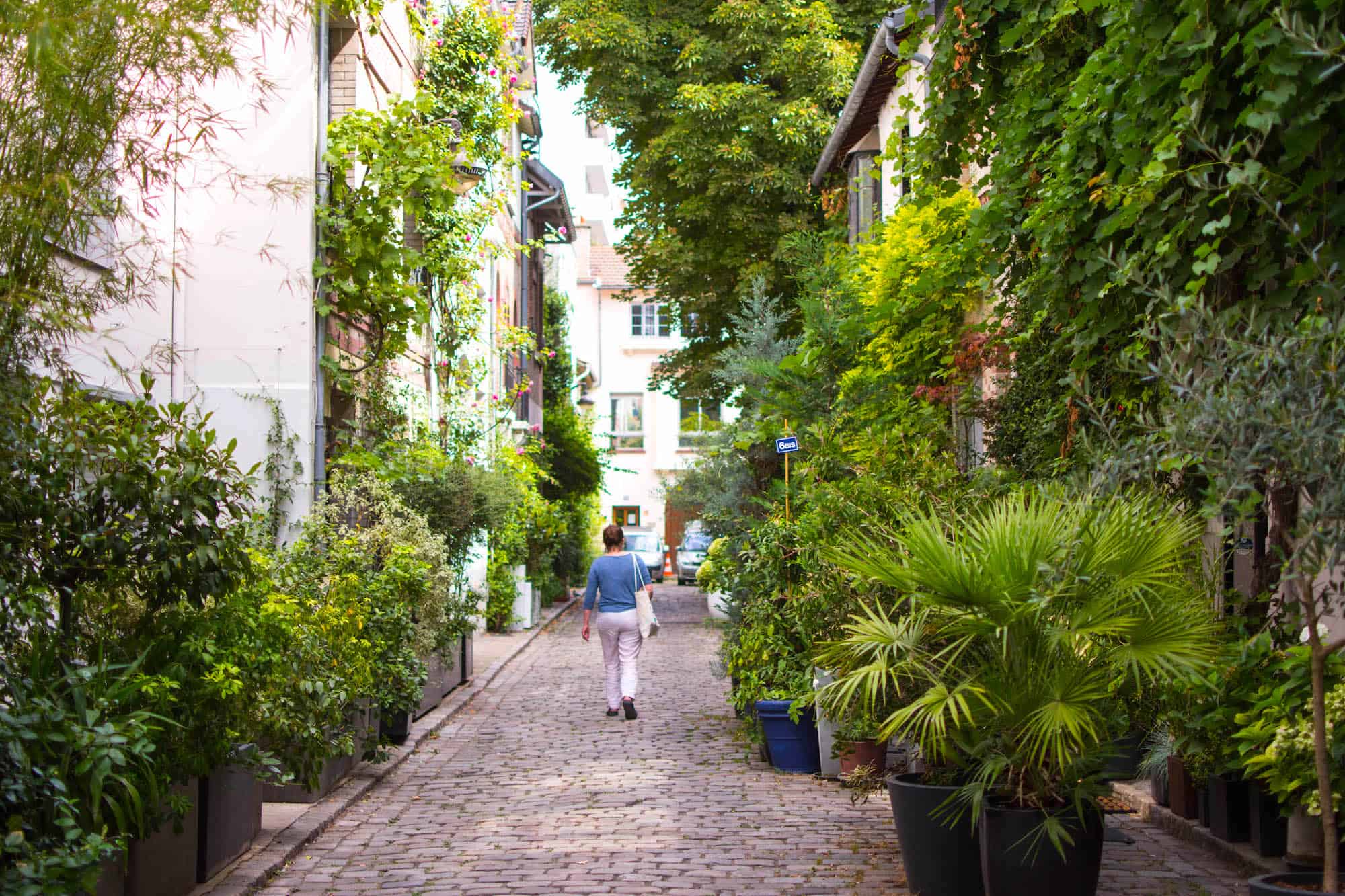Making Magique & Janellie
During my recent visit to the U.S., my sister told everyone that I live in Paris just to marvel at their reactions.
“Just stick a dagger in my heart, why don’t you,” came the response from a cosmetics salesman. “I’d give anything to live in Paris…” It garnered me bonus points in San Francisco’s chic boutiques and even scored us a table at an impossible-to-book restaurant. “My sister’s just in from Paris… hoping you might have something for us at eight?” Pas de problème.
bestarns
Every expat who lives here knows the feeling. Why? Because Paris is the culmination of our romantic dreams, the city upon which we project our fantasies of a life well lived. We’re the lucky ones who’ve somehow pulled it off. But how?
Galou
For every foreigner living in Paris – upwards of 310,000 according to the Marie de Paris – there are as many tales of how we achieved it. But there are commonalities that could help you realize your own Parisian dreams. Here are some facts about living and working in France for anyone seriously contemplating la vie en rose.
j.rakkolainen
Tourist visa. First, the easy – albeit not totally legal – way to “live” in France. When traveling to France from most countries, you will receive a 90-day tourist visa upon arrival. This entitles you to stay legally for up to three months but not to work or receive any social benefits (including healthcare). Before your 90 days are up, travel to another non-European Union country, get a passport stamp, and come back to France where you’ll be issued another tourist visa. I know people (who shall remain nameless) who’ve managed to live in Paris this way for years. Trouble is, you cannot be legally employed here. Independent wealth – or income from your home country – is kind of a prerequisite.
Sara Berger
Visa de long séjour. For those willing and able to live in France without working or studying, you can apply for a long stay visa and then a carte de séjour once you’re here. Be warned: This is not for the faint of heart. It requires proof of financial resources, private medical insurance, police clearance and massive documentation. The process begins at your local French consulate and continues on French soil at the Prefecture de Police. The good news is that navigating this process will give you true insight into the French psyche (not to mention its byzantine bureaucracy and those who staff it). But if you’re planning a longer stay to, say, start a business or take a sabbatical, this is the way to go. Let the bureaucratic battles begin!
Darice & Making Magique
Student visa. “I came as a student and never left…” It’s a common refrain among expats and remains one of the best ways to get here then figure out a way to stay. How? You must be accepted to a school in France (or an exchange program through your university) and demonstrate a financial guarantee of about $600 a month. Then it’s mostly up to your program to obtain the visa for you. The upside here is that in addition to living here legally, student visa holders can apply for temporary work permits to be employed for a number of hours per week. Remember what they say about a “foot in the door?” A temporary position has at least the possibility of leading to gainful employment – and the coveted work visa that comes along with it.
brunotto [Still very busy…]
Work visa. Ah, the French work visa, the holy grail of living and working in France. Sought by many but secured only by a lucky few, this is perhaps the toughest route to living in France long-term. Why? Competition. EU residents (and the countless native English-speakers among them) have an automatic legal right to work in France. So for a French (or international) company to hire you, they will have to prove to the government why you are better qualified for the job than a French national or an EU citizen. It’s a tough case to make – and an expensive one. A better bet is to get hired in the U.S. and get transferred to France. That way, your employer gets the work visa for you.
Carin Olsson
On a hopeful note, Paris is home to many international agencies where English is the lingua franca, UNESCO, the OECD and the International Energy Agency (IEA) among them. They hire bi-lingual workers from all over the world with particular areas of expertise, such as economics, international affairs and development, transportation, energy, gender and much more. These agencies handle visas and permits and offer tempting packages and job security to their employees. Check their websites for current openings as turnover tends to be relatively high.
bestarns
As for me? I did it the old-fashioned way – I married it. (Not a Frenchman but a Paris-bred American whose bilingualism landed him a job at an international agency). Then there’s the fairy tale I’ve heard more than a few times in Paris. “I came for a month and met my future husband in a café. That was twenty years ago…” Does it really happen? But, of course!
How about you? Dreaming of making the big move? Or perhaps you’ve already pulled it off. How did you manage it? We’d love to hear from you
Written by Paige Frost for the HiP Paris Blog. Looking for a fabulous vacation rental in Paris, London, Provence, or Tuscany? Check out Haven in Paris.
































I’m trying a different route in by way of the Talent et Compétences visa. It’s good for 3 years then renewable for another 3. 6 years is enough for me to make everything permanent.
Hello,
I have a dream to retire in Europe. France is at the top of my list of choices. I can retire at 50 or 55 from the Fire Dept, but will have to continue to work afterward. For now I can dream of a future there.
It is actually 90 out of every 180 days, so you can come in and out but need proof (hotel receipts, tickets) proving that you spent 90 days out of the country for each 180 day period.
Thank you all for the great comments and suggestions. So glad you found the post useful. We’re loving reading about your stories, too. Thanks for sharing!
You’ve given some good, sound advice here and I like that you haven’t sugar coated the process. I’m sure it will help many who are planning a move to France!
As a New Yorker living in Paris, I absolutely love this post! It’s so hard to neutralize the romanticism of my life here. Not that I don’t absolutely love it, but I don’t think people realize how challenging even just the process of getting here was. Thanks so much for sharing this. I’m about to forward it to all my friends and family 😉
As an expat living fulltime in Nice, I too know the horrors of French bureaucracy. My advice would be to work for a French/International co. and ask to be transferred; I know a French person who did this with IBM and worked in New York, so it can work both ways.
k_sam beat me to it, but yeh, the tourist visa option no longer works (otherwise I would be a much happier Australian trying to live in Paris!!) You have to go to England and eat mushy peas for 3 months before you can come back. Sigh… schengen zone…
Hi paige,
I’m a pure French Parisian (I was born there) and it was quite a time before I realize how much privileged it was making me. It took me to travel, to see other places and to hear all around the world people marvelling everywhere just to be hearing that I was Parisian so that I finally understand that I was blessed to be entitled to call “home” a place that so much consider as merely heaven.
Your title “Becoming French” connect me to the one of a book I just published: “Being French!” (see my site about it), a book in which I bring for Anglo-Saxon people something deeper about the French ways in matter of sensual life. In this book I give the view of a true insider about what makes us easier and happier in that delightful department of life: Sensuality.
I remember going with my daughter when she was getting her carte de séjour and you are right to point out that it is not for the faint of heart. She has lived in Paris for about 18 years now, and I am lucky enough to get to visit every year or two. Paris is a fabulous city, but like any fabulous city, it is also very expensive to live there. I am really enjoying this blog, but even more looking forward to a return to Paris this coming spring!
i dream of being an expat in paris or london……..like the way you did it!
cheers
debra
How interesting…great post. xx peggybraswelldesign.com
GREAT POST.
Through my blog, I regularly receive emails from French people who want to come to the US as tourists and find a “petit boulot” so they can stay and live the American dream. I repeatedly tell them that it can NOT be done this way, just like Paige explains it in this post. These people then tend to think that the US government is tough and “not nice” with them and I keep telling them: it’s the same in France but you don’t know because it’s your country! 🙂
Try being a foreigner in France and you’ll see how hard it is to be able to live and work there.
So THANK YOU Paige for talking about this from another perspective! 🙂
Bon week-end !
I’m one of the many dreaming about moving to Paris someday..great post!!
Just as an fyi, the 90 days in, 1 day out loophole was closed several years ago. You now have to leave the Schengen zone for a full 90 days before you can come back for another 90. So basically it’s now 3 months on, 3 months off.